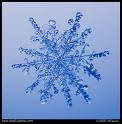Also, the major/minor modality that we are so used to only developed in the West starting around 1650 or so. During the Renaissance and earlier, the major and minor scales were only two of six different scales (or Modes) that were commonly used (there is a seventh, but hardly anyone used it). An example of these modal scales is the song "Scarborough Fair" by Simon and Garfunkle. It's in what is called Dorian Mode; a minor scale with a sharped sixth. On a piano, play a scale on all of the white keys, going from D to D, that's Dorian.
So the idea that the chakras line up with the Western major scale is a misconception born from typical Western hubris; that the way we have things now is both the best way and the way it has always been. But this does not mean that music and the chakras do not have a connection, they very much do. But the connection is a more natural one, based upon harmonic vibrations and not a man-made scale. The chakras actually resonate with certain musical intervals, based upon what is called the "harmonic series". In a nutshell, the harmonic series is how mathematical ratios line up with music. All music is vibrations. If you take a certain vibration, a certain tone, and double the speed, you end up with a tone that is an octave higher than the original. If you triple it, you end up with a perfect fifth. If you multiply it by 5, you get a major third, by 7 and you get a minor 7th, and so on. I feel that the chakras resonate with the same musical intervals, based upon a fundamental tone: the second chakra with the octave, the third with a fifth, the fourth with a major third, the fifth with a minor 7th, the sixth with a ninth or major 2nd, the seventh with a tritone, and the eighth with the octave again.
If you are truly interested in experimenting with music and the chakras, try this out. Find a piano and play an octave with your left hand, down towards the bottom fourth of the keyboard. With your right hand, play a perfect 5th higher than the top note in your left, then a minor 6th higher than that. So if you start with C, you play two Cs with your left hand and a G and an E with your right. If you have the notes correct, you will notice this gives off a very open and powerful sounding major triad. The reason it sounds so good is because these three notes are in order based upon the harmonic series, vibrating at double, triple, and quintuple the speed of the bottom note, so they all resonate perfectly with each other. Now, start shifting chromatically up and down the scale, keeping the same intervals. Eventually you will find a chord that resonates more powerfully with you than any other, one that you feel almost as a physical force. For me, it is E Major, but it is different for everyone. This is your fundamental, the tones that resonate with your lowest four chakras. You will probably find, if you listen, that some of your favorite songs or musical pieces are in that same key, and that you will not like pieces that are in keys that clash with it.
This is all just my own personal conjecturing, so I'd love to hear other input as to whether or not they have similar experiences to mine.

